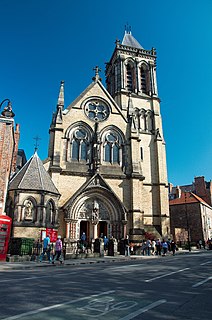Biography
Marle was born Patrick Cassamer Rafter in 1885,the son of Dr.John Patrick Arthur Rafter,L.R.C.P.S.I. and Mary (née Mortelle). His parents were married in Cork, Ireland in 1881. Mary Mortelle was from Charleville, Cork and John Rafter was born at Knockthomas, Carlow, Ireland and became a physician and the first Roman Catholic Mayor of Bootle. Marles brother Major James Rafter was also a doctor and served throughout the First World War with the Royal Army Medical Corp, proving himself a hero and awarded the Military Cross and bar. Marle became a medical student at Liverpool University, but later he decided to adopt a stage career.

Earl of the County of Cork, usually shortened to Earl of Cork, is a title in the Peerage of Ireland, held in conjunction with the Earldom of Orrery since 1753. It was created in 1620 for the Anglo-Irish politician Richard Boyle, 1st Baron Boyle. He had already been created Lord Boyle, Baron of Youghal, in the County of Cork, in 1616, and was made Viscount of Dungarvan, in the County of Waterford, at the same time he was given the earldom. These titles are also in the Peerage of Ireland.
Events from the year 1975 in Ireland.
Events from the year 1961 in Ireland.
Notable things that happened in Ireland in 1955.
Events from the year 1951 in Ireland.
Events from the year 1939 in Ireland.
Events from the year 1907 in Ireland.

Billie Honor Whitelaw was an English actress. She worked in close collaboration with Irish playwright Samuel Beckett for 25 years and was regarded as one of the foremost interpreters of his works. She was also known for her portrayal of Mrs. Baylock, the demonic nanny in the 1976 horror film The Omen.

John Blake Dillon was an Irish writer and politician who was one of the founding members of the Young Ireland movement.
Alun Davies Owen was a Welsh screenwriter and actor predominantly active in television. However, he is best remembered by a wider audience for writing the screenplay of The Beatles' debut feature film A Hard Day's Night (1964), which earned him a nomination for the Academy Award for Best Original Screenplay.

Kevin Izod O'Doherty was an Irish Australian politician. He was a Member of the Queensland Legislative Assembly.

George Goldie was an English ecclesiastical architect who specialised in Roman Catholic churches.
Events from the year 1666 in Ireland.
Arthur O'Sullivan, also known as Archie O'Sullivan, was an Irish actor who appeared on stage, screen and radio.

Patrick James Smyth, also known as Nicaragua Smyth, was an Irish politician and journalist. He was M.P. for Westmeath from 1871 to 1880 and for Tipperary from 1880 until his death.
Rafter is both a given name and a surname that may refer to:
Matthew Spangler is an American playwright, director, and professor of performance studies.
The 1977 Silver Jubilee and Birthday Honours were announced on 11 June 1977 to celebrate Her Majesty's Silver Jubilee and Birthday in the United Kingdom, Canada, Australia, New Zealand, Barbados, Mauritius, Fiji, the Bahamas, Grenada, and Papua New Guinea.
The 1925 Birthday Honours were appointments by King George V to various orders and honours to reward and highlight good works by citizens of the British Empire. The appointments were made to celebrate the official birthday of The King, and were published in The London Gazette on 3 June 1925.
The 1917 New Year Honours were appointments by King George V to various orders and honours to reward and highlight good works by citizens of the British Empire. The appointments were published in several editions of The London Gazette in January and February.
This page is based on this
Wikipedia article Text is available under the
CC BY-SA 4.0 license; additional terms may apply.
Images, videos and audio are available under their respective licenses.





